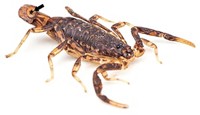Advertisement
Grab your lab coat. Let's get started
Welcome!
Welcome!
Create an account below to get 6 C&EN articles per month, receive newsletters and more - all free.
It seems this is your first time logging in online. Please enter the following information to continue.
As an ACS member you automatically get access to this site. All we need is few more details to create your reading experience.
Not you? Sign in with a different account.
Not you? Sign in with a different account.
ERROR 1
ERROR 1
ERROR 2
ERROR 2
ERROR 2
ERROR 2
ERROR 2
Password and Confirm password must match.
If you have an ACS member number, please enter it here so we can link this account to your membership. (optional)
ERROR 2
ACS values your privacy. By submitting your information, you are gaining access to C&EN and subscribing to our weekly newsletter. We use the information you provide to make your reading experience better, and we will never sell your data to third party members.
Awards
Newscripts
2019 Ig Nobel Prizes
by Bethany Halford
September 13, 2019
| A version of this story appeared in
Volume 97, Issue 36
Scientific reports about a 5-year-old’s saliva production, a machine that changes diapers, and wombat poop took top honors at the 29th Ig Nobel Prize ceremony. The peculiar but popular prizes, which “honor achievements that make people LAUGH, and then THINK,” were awarded on Sept. 12 at Harvard University’s Sanders Theatre. Mirthful master of ceremonies Marc Abrahams and the other entertaining editors of the Annals of Improbable Research produced the event.

This year’s Chemistry Prize went to a team of pediatric dentists at Hokkaido University for determining how much saliva a 5-year-old produces. The study of 30 kindergartners showed that each generates about 500 mL of spit each day (Arch. Oral Biol. 1995, DOI: 10.1016/0003-9969(95)00026-L).
Iman Farahbakhsh, a mechanical engineering professor at Islamic Azad University, won the Engineering Prize for inventing a machine that changes babies’ diapers. The combination washer and diaper-changing apparatus “includes a main chamber, a glass window, a seat, a leg holder, a safety belt, a diaper removing arm, a sprinkler, and a dryer,” according to the 2018 patent (US 10,034,582).
The Physics Prize was awarded to a team that studied how and why wombats make cubed poo. The group reported its findings—that the irregular elasticity of wombats’ intestines leads to compact, cubed feces—at a meeting of the American Physical Society’s Division of Fluid Dynamics in 2018. It is the second Physics Ig Nobel for two members of the team, Patricia Yang and David Hu of the Georgia Institute of Technology, who shared the 2015 prize for determining it takes most mammals 21 s (plus or minus 13 s) to empty their bladders.
Silvano Gallus, head of the Laboratory of Lifestyle Epidemiology at the Mario Negri Institute for Pharmacological Research, garnered the Medicine Prize “for collecting evidence that pizza might protect against illness and death, if the pizza is made and eaten in Italy” (Eur. J. Cancer Prev. 2006, DOI: 10.1097/01.cej.0000186632.04625.f6).
The Medical Education Prize went to researchers that used the animal-training technique known as clicker training to teach surgeons to perform orthopedic surgery (Clin. Orthop. Relat. Res. 2015, DOI: 10.1007/s11999-015-4555-8).
An international team claimed the Biology Prize for a study that determined there is a distinct difference in the magnetic properties of live and dead cockroaches (Sci. Rep. 2018, DOI :10.1038/s41598-018-23005-1).

Two human fertility researchers at the University of Toulouse earned the Anatomy Prize for “Thermal Asymmetry of the Human Scrotum,” their study of postal workers and bus drivers (Hum. Reprod. 2007, DOI: 10.1093/humrep/dem133). One of the winners, Roger Mieusset, also invented heated underwear for men, purportedly for contraception.
The Economics Prize went to three microbiology researchers “for testing which country’s paper money is best at transmitting dangerous bacteria.” Answer: the Romanian leu (Antimicrob. Resist. Infect. Control 2013, DOI: 10.1186/2047-2994-2-22).
For their study “The Pleasurability of Scratching an Itch: A Psychophysical and Topographical Assessment,” five dermatologists, a psychologist, and a biostatistician won the Peace Prize (Br. J. Dermatol. 2012, DOI: 10.1111/j.1365-2133.2012.10826.x).
And finally, Julius Maximilian University of Würzburg psychologist Fritz Strack won the Psychology Prize “for discovering that holding a pen in one’s mouth makes one smile, which makes one happier—and for then discovering that it does not” (Front. Psychol. 2017, DOI: 10.3389/fpsyg.2017.00702).

A recording of the Ig Nobel ceremony will be available at youtube.com/improbableresearch, and National Public Radio’s Science Friday will air an edited recording of the ceremony on Nov. 29, the day after US Thanksgiving.
Bethany Halford wrote this week's column. Please send comments and suggestions to newscripts@acs.org.





Join the conversation
Contact the reporter
Submit a Letter to the Editor for publication
Engage with us on Twitter